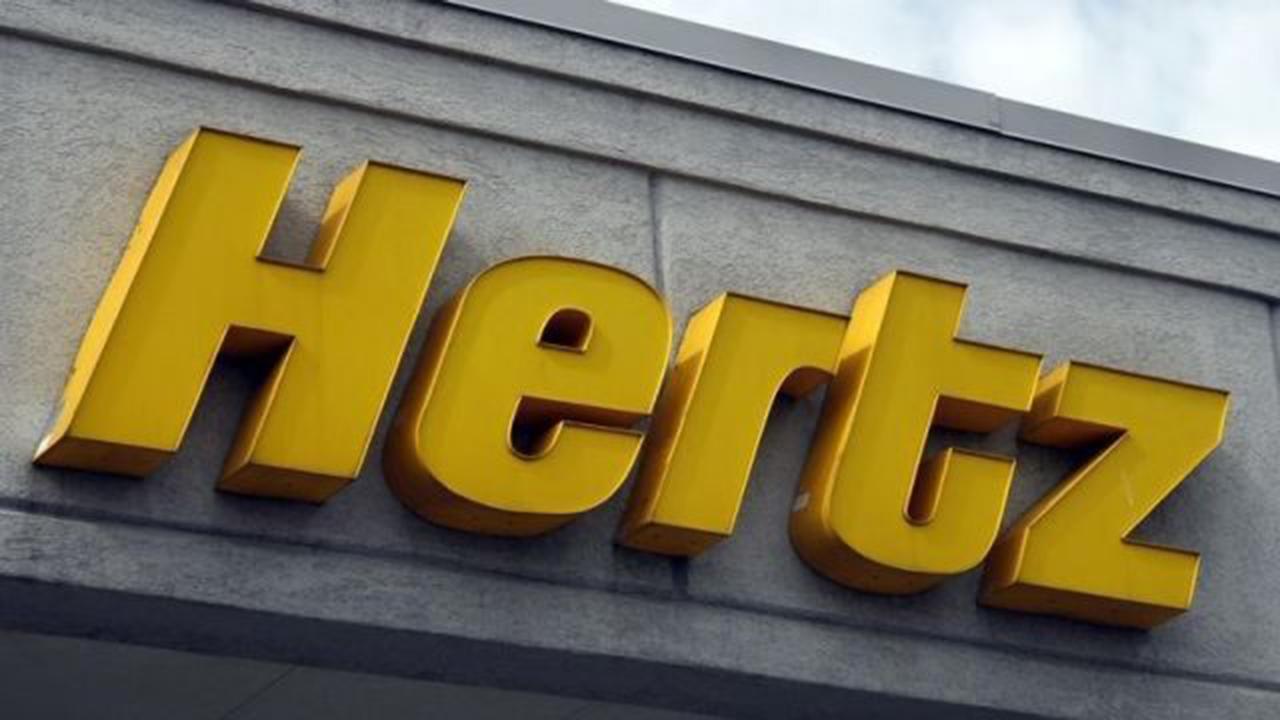Rental car giant Hertz files for bankruptcy
Company enters chapter 11 with no deal in place from creditors
Get all the latest news on coronavirus and more delivered daily to your inbox. Sign up here.
Hertz Global Holdings Inc., one of the nation’s largest car-rental companies, filed for bankruptcy protection Friday, saddled with about $19 billion in debt and nearly 700,000 vehicles that have been largely idled because of the coronavirus.
The Estero, Fla.-based company entered chapter 11 proceedings in the U.S. Bankruptcy Court in Wilmington, Del., hoping to survive a drop-off in-ground traffic from the pandemic and avoid a forced liquidation of its vehicle fleet.
HERTZ MISSES LEASE PAYMENT, PREPS FOR POTENTIAL BANKRUPTCY
The company’s collapse marks one of the highest-profile corporate defaults stemming from the pandemic’s impact on air and ground travel, though Hertz also had challenges before the current economic crisis. Even before the Covid-19 outbreak, Hertz had been struggling with competition from peers including Enterprise Holdings Inc. and Avis Budget Group Inc., as well as from ride-hailing services such as Uber Technologies Inc. and Lyft Inc. The company lost some $58 million last year, its fourth consecutive annual net loss.
CLICK HERE FOR THE LATEST CORONAVIRUS COVERAGE
| Ticker | Security | Last | Change | Change % |
|---|---|---|---|---|
| HTZ | HERTZ GLOBAL | 5.28 | -0.01 | -0.19% |
| CAR | AVIS BUDGET GROUP INC. | 118.72 | -1.70 | -1.41% |
But Hertz’s business was hammered by the onset of the coronavirus, as people world-wide bunkered in at home and global travel shriveled up. Going forward, as businesses adapt by conducting meetings remotely, business travel may not return to pre-pandemic levels, according to bankers and analysts who follow Hertz.
Hertz didn’t reach a deal with creditors before entering chapter 11, heightening the risk of a full liquidation of the fleet, although the company and investors have several weeks to work out an agreement avoiding that outcome, people familiar with the matter said.
Hertz has spent years trying to restructure its business, and has blown through four chief executives in less than a decade. Most recently, former Chief Executive Kathryn Marinello was replaced Monday by Paul Stone, who previously served as the company’s executive vice president and chief retail operations officer for North America.
CORONAVIRUS FORCES HERTZ TO LAY OFF 10,000 EMPLOYEES
Hertz has also had a debt problem that can be traced back to a 2005 leveraged buyout by private-equity firms. Founded in Chicago in 1918 and originally known as Rent-a-Car Inc., Hertz opened its first airport car-rental facility at Midway Airport in 1932. The company’s owners have included RCA Corp. and later Ford Motor Co., which sold Hertz to a buyout group led by Clayton Dubilier & Rice in 2005 for $5.6 billion.
GET FOX BUSINESS ON THE GO BY CLICKING HERE
The company went public in 2006, and activist investor Carl Icahn, who started acquiring Hertz shares in 2014, now owns more than one-third of the company and has placed three of his representatives on the board.
The pandemic has diminished automotive traffic in the U.S., squelched car sales and cut into rental reservations at Hertz. The Wall Street Journal reported in early May that Hertz, the nation’s second-largest rental-car company by fleet size behind Enterprise, was preparing for a bankruptcy filing.
The bankruptcy is expected to be complex given the company’s vast debt and corporate structure, which includes $14.4 billion of vehicle-backed bonds at subsidiaries that aren’t part of the chapter 11 filing.
Like Avis and some other rental car companies, Hertz doesn’t own its vehicles. The company leases its rental-car fleet, about 770,000 vehicles in total, from separate financing subsidiaries. The lease payments are earmarked for investors that own bonds backed by the fleet.
LITTLE TIKES CARS OUTSELL BEST-SELLING AUTO IN UK DURING CORONAVIRUS
Now that Hertz has filed for bankruptcy, investors with rights to the vehicle fleet have to wait for 60 days before they can foreclose on and sell the cars. Hertz and its creditors will likely aim to prevent a complete liquidation and strike a deal to downsize the fleet while keeping some vehicles in operation, said people familiar with the matter.
With the $14.4 billion in vehicle-finance bonds so widely held—by pension funds, mutual funds and structured credit funds—the company has faced difficulty coordinating with bondholders, people familiar with the matter said.
Rental-car companies play an important role in supplying newer models to the used-vehicle market. Hertz also is a major customer for U.S. automakers, purchasing about half of its fleet from General Motors Co., Ford Motor Co. and Fiat Chrysler Automobiles NV in 2019, according to a financial filing.
Analysts feared that Hertz could be forced to sell part or all of its fleet into an unusually weak market. But the possible liquidation would come at a time when demand for used vehicles is rising slightly, and pricing in the market is showing signs of recovery after hitting historic lows in April.
“Any ripple effect will be less than it was six weeks ago,” said Zo Rahim, an analyst for Cox Automotive, which owns vehicle auction operator Manheim Inc.




















